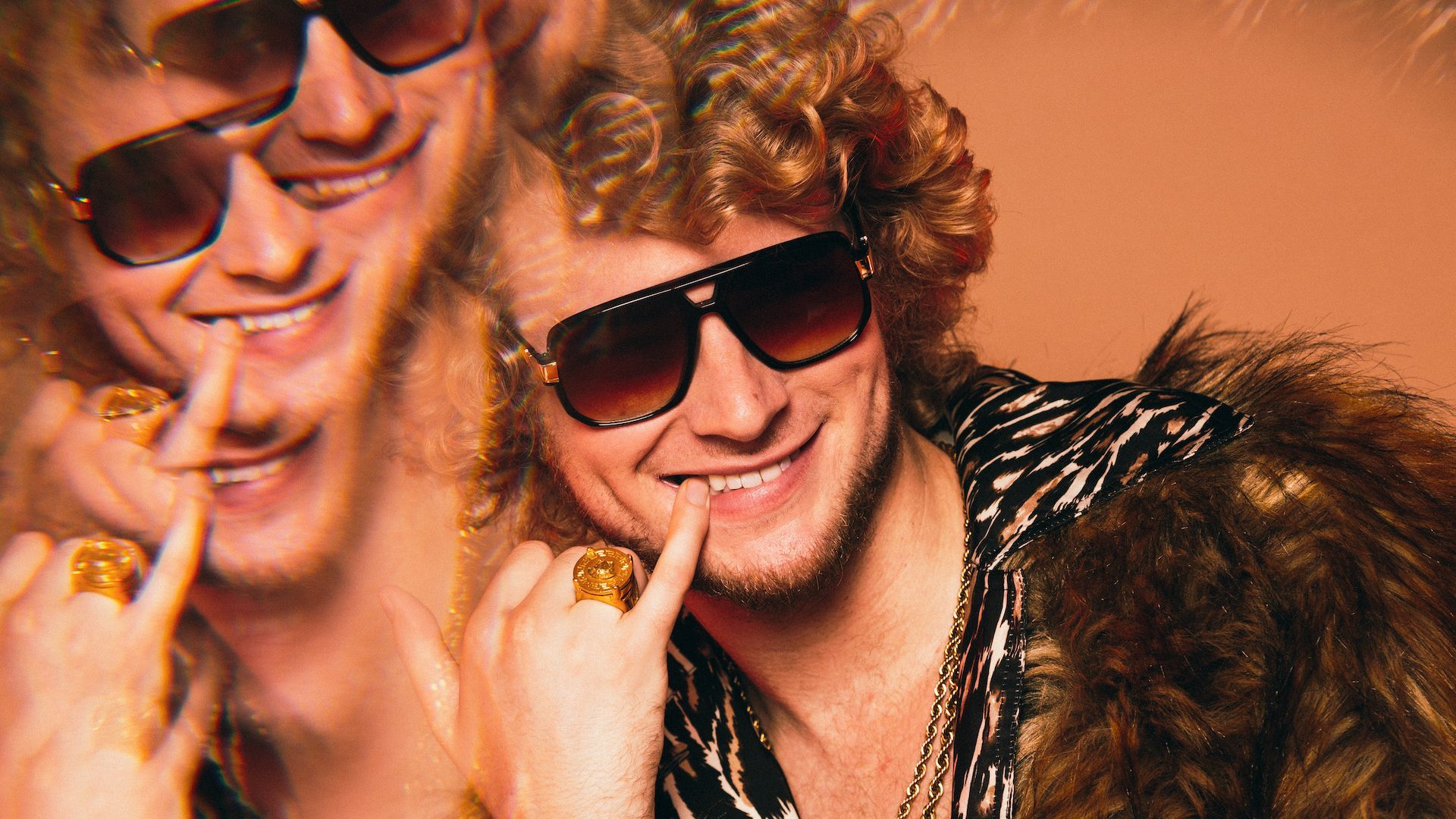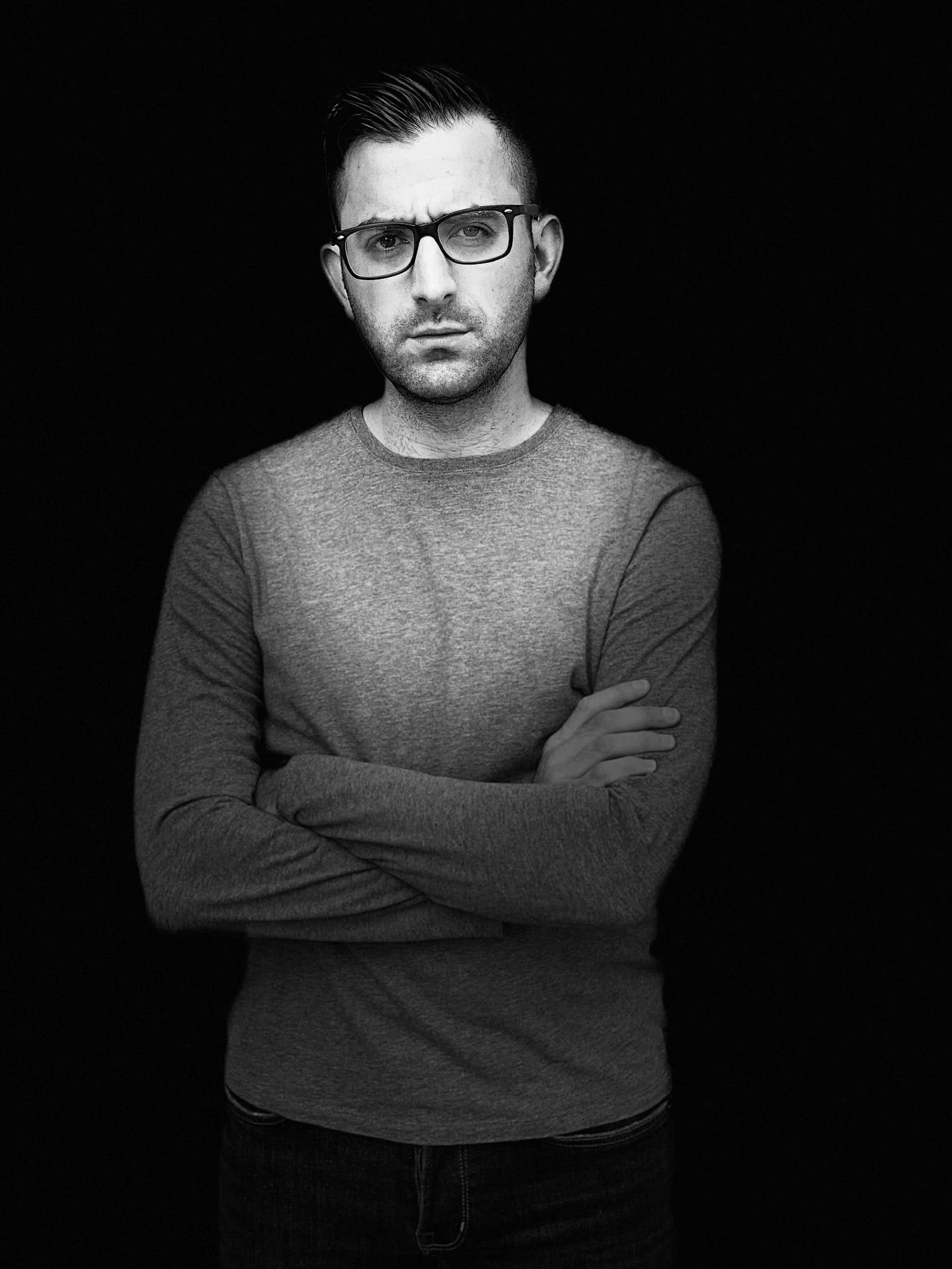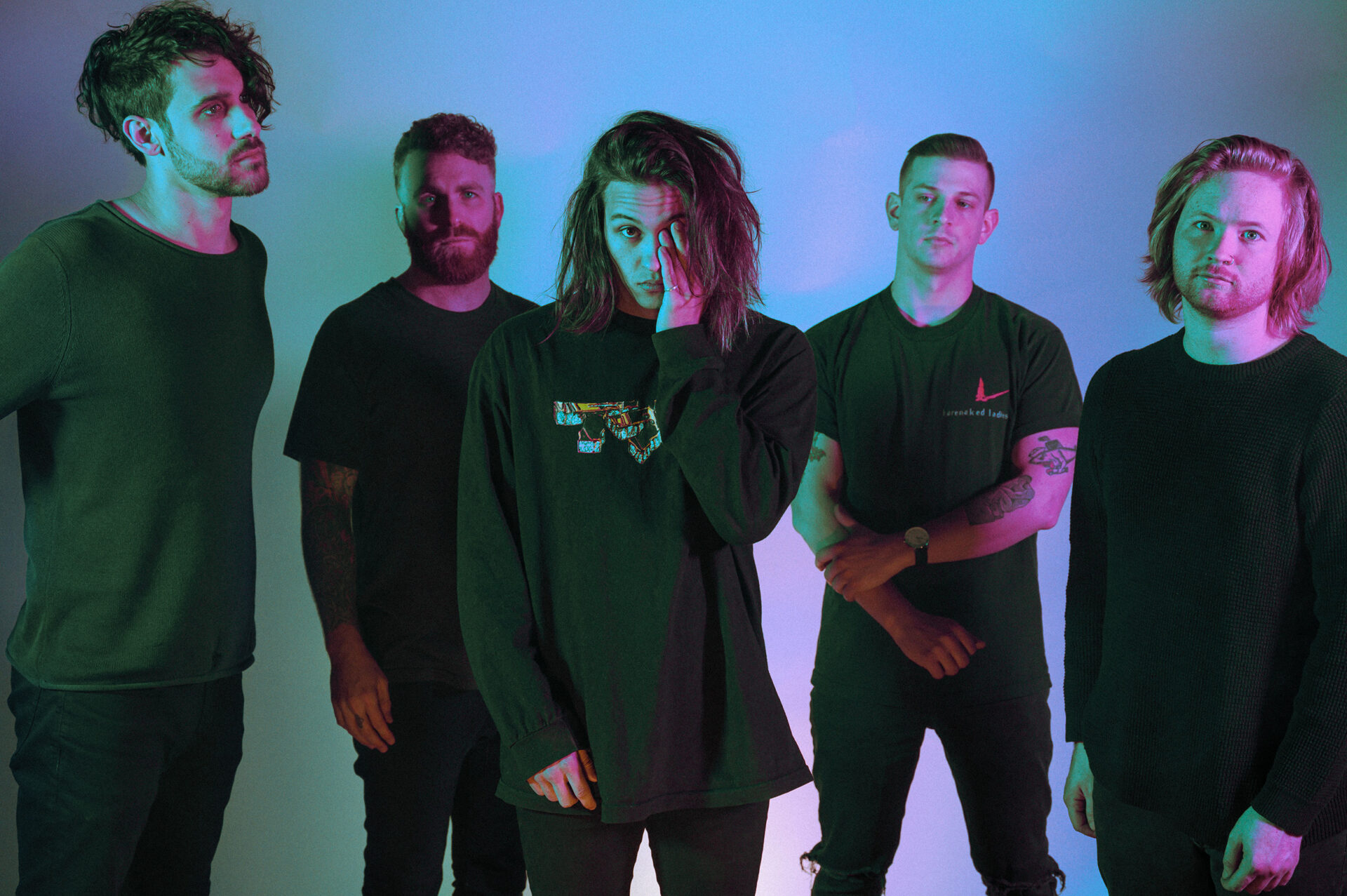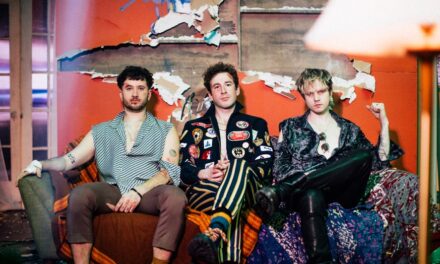It seems a strange comparison to make, but with an outlandish, in-your-face omnipresence, an unlikely sense of humor, and his own unfortunate run-in with the law, Yung Gravy has earned his comparison to Martha Stewart. After all, he toes the line between serious artist and “meme rapper”, in the same way Stewart always thrives in the face of being mocked.
Sitting in his (mom’s) Mineapolis apartment, you’d never guess the scraggly-haired blonde— known to the passport office as Matt Hauri— was a famous rapper. The house is bare behind him, and he looks surprisingly normal in a blue T-shirt, bereft of the fur coats and jewels characteristic of his persona on social media. Lockdown has treated him well so far, or “not horrible”, as he tells me, and it’s the first time in a long time he’s actually gotten to slow down. “At first it was like, I was like, ‘Oh, this is not a big deal. It’s not going to affect me at all.’ And then, I was like, ‘Oh, I’ll just go home and take a break’. So I went home to my mom’s house. That’s where I am right now, back in Minneapolis area. And it was dope for like, a month. But then I started getting cabin fever.”
To be fair, Minneapolis is a far cry from the bustling metropolis of Los Angeles, and hardly much makes the news past the confines of the Gopher State. This summer, however, was different, as Minnesota found itself stage center of the nation, at the helm of race-relations in America by way of George Floyd, which Hauri himself brings up pretty early in our conversation. “Halfway through quarantine was when the George Floyd events all happened right here, and I was just right here in town. I felt like I was pretty inspired by all of the reactions to that, and it was interesting to see everything happening in Minnesota. We’re not usually like the start of anything.”
As the turmoil died down and the reality of the pandemic once again set in, Hauri found himself both transformed by the experience, and much more grounded. “I think that actually motivated me more to just get this album out and, and to make it the best it could possibly be. Whenever I’m like I’m out in LA, I’ll get distracted or have things I gotta do. Here all you can really do is go to the store or make music. I think it was good time to work on an album. I had more time to focus on since I was back home. I had better focus here.”
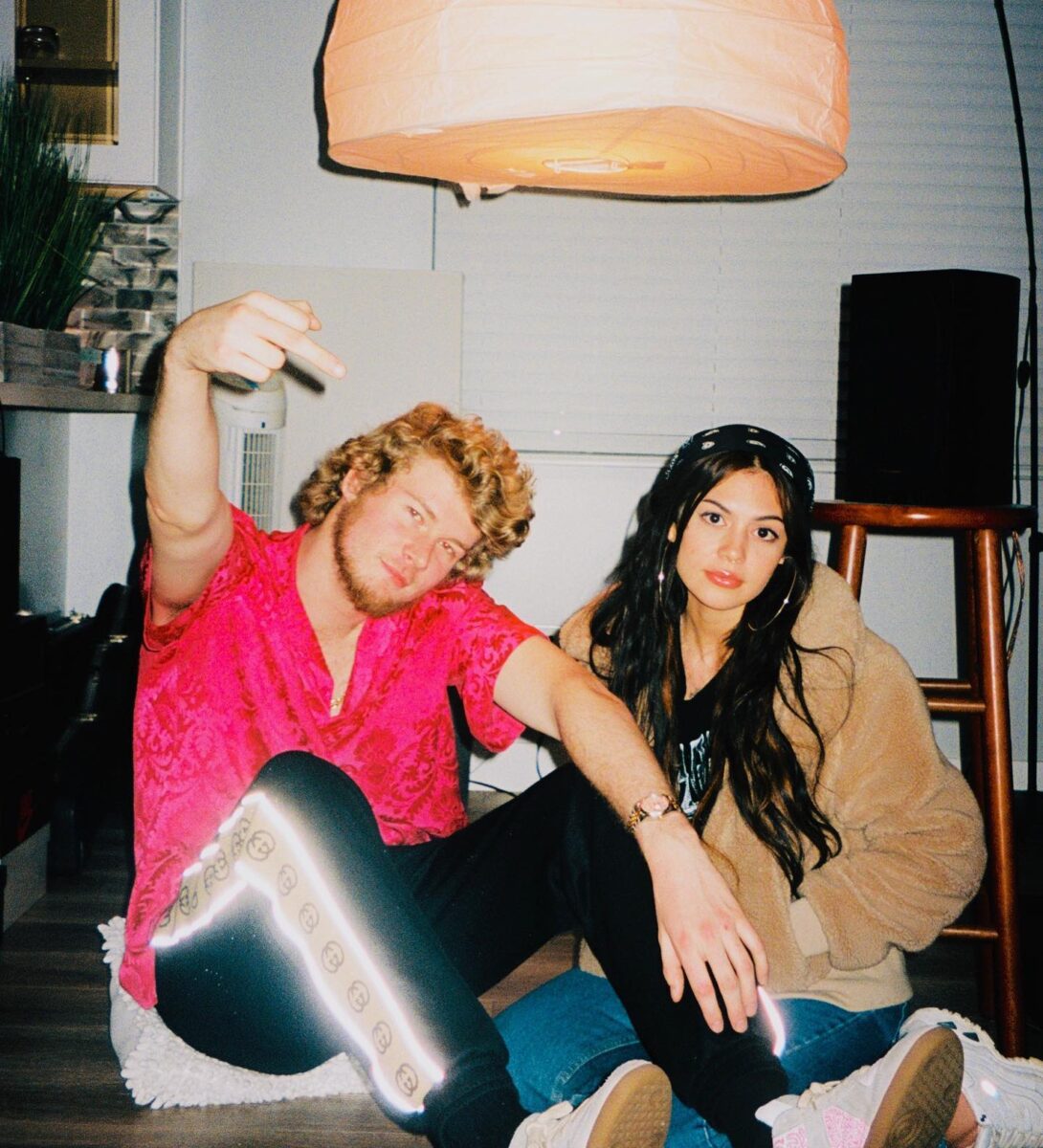
But despite the circumstantial upsides, it’s clear the Rochester-reared rapper has outgrown the tiny city life, having swapped the frosty state for sunny California. Rochester is a small municipality— that much is revealed as we bond over a mutual friend also from there— and nearby Minneapolis hardly a city of 500K. “I’m just used to traveling all the time. This is the longest I’ve stayed in one place for a couple of years. Like I hadn’t spent more than a month in the same place for a while. I had been bumming off of like my friends in LA, and whenever someone would leave town, I would stay in their room and pay the roommate’s rent. So I felt weird and like, I don’t even know. I was just trippin’. So I went to Montana, visited some people there and did some outdoorsy shit, which was nice. I just had to kind of start taking breaks.”
Nowadays, Gravy’s rap career has taken him far from Rochester, MN, and it’s no surprise the city’s relationship with the genre is minimal. A mostly white, middle-class city— and home of the famous Mayo clinic, which alone employs what is half the population— it’s easy to see why not. But, as a child, Gravy had a surprisingly vast musical vocabulary, listening to everything from Chief Keef to rapper Curren$y, who up until recently were both his dream connections. “I listened to a lot of rap obviously. Curren$y was the big one. I said Chief Keef… who else? I was really into Tupac and more of that ’90 stuff, but I also listened to a ton of soul music and funk, so it’s kind of all over the map. I really liked Earth, Wind & Fire-type artists. Patrice Rushen is a good one that I’ve always loved, and have sampled a few times. Kind of all over the map.” And being in quarantine at home found Gravy reconnecting musically with much of the artists he called home years before. “It was a nostalgic time period [coming back]. I felt like I was doing things that I did more often in the past. Hanging out with certain people. I got to see a lot of my day one friends that I hadn’t seen in a while. I was listening to music that I listened to more during high school. Subconsciously that must’ve had an effect on things. There was kinda this nostalgic fun feeling that kind of transferred into the album a little bit.”
“I worked on a lot of it, a lot more of it alone– either alone or just with like the engineering studio. So there was less noise. It’s a lot more purely my own work versus like being somewhere where the producer is like saying, ‘Oh, try this, try that. There was not much influence outside of myself, which hopefully ends up being a good thing. I obviously write all my own lyrics– No one can really write my lyrics for me, but when I used to work with Y2K a lot, he would have ideas about like, ‘Oh, like let’s try doing this’ or like, ‘Let’s change this up’, but being alone, I took the reins on a lot of the production decisions as well. I did more co-production, which is part of the writing process. I touched things up a lot more. And my actual lyrics and flows all came without any second-guessing by third parties. There was no questioning anything or rethinking things, unless it was me. I obviously do that actually a lot— second guess everything— but there was no one like, ‘Oh, I like this, I like that.’ It was pure Gravy.
“It’s been an interesting quarantine,” he adds. “I haven’t gotten COVID yet.”
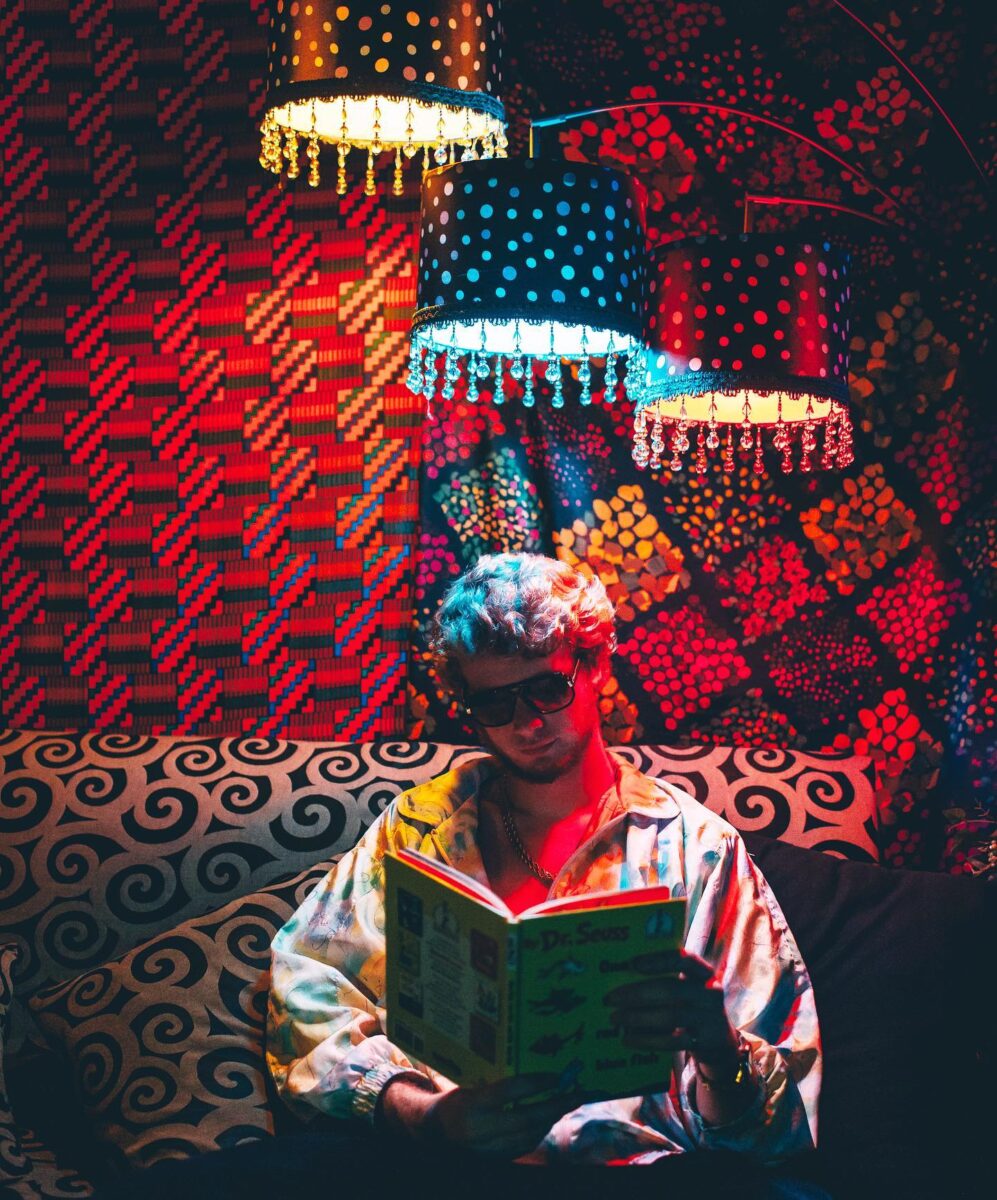
I ask if he had any other plans for his life beforehand.
“I wanted to be a pilot at one point. I thought about that. But I didn’t end up studying in school. I did marketing at UW Madison, but when I was about to graduate, I kind of slowly turned away from that and was going more towards the business side of things. I started some little businesses in college and then I worked for this company in Madison, a venture capital company that invests in small businesses. And I was doing all the branding for these smart people that weren’t good at branding. For example, like they made a sleep apnea device and made a PowerPoint to explain it, and I had to make it look attractive. So anyways, I got offered a job to to run their office in Minneapolis or Chicago. That’s probably was what I would have done.” I wonder what the venture capitalists would say about him now. “I had a job lined up. But I probably would have ended up just doing some other like entrepreneur-type move because that’s what I ended up liking the most.”
But early 2016 saw a sudden uptick in Soundcloud listeners, and just like that, four years of marketing became a thing of the past.
Or so it did, in the venture capitalist sense. Although being finally signed to a label afforded him the luxury of built-in PR, being an artist in the internet age requires a considerable amount of self-marketing, and finding your place amongst a music world saturated with sonic fads here today and gone tomorrow, can be a rather tricky slope. Luckily for Yung Gravy, he seemed to know exactly what he wanted to do, his particular brand of daring lyrics having followed from the early days. Even the name stuck around from that time. “Yung Gravy just kind of came about one day. I basically had a few names in circulation, like when I used to kind of freestyle with my friends. Mr. Butter, a Lil’ Steamer, there’s… they go on, but I was freestyling and I said something about gravy and then in that moment it kind of just stuck. And then, and then I couldn’t stop saying gravy and wavy. I just kinda ran out of things to rhyme with, and I always say gravy as a backup and it stuck. Once I actually started taking rap more seriously, it just made sense. I was like, ‘Okay, this is what I’m rapping about. This is my– [persona]. So I was like Yung Gravy is pretty on the nose. So then I rolled with that.”
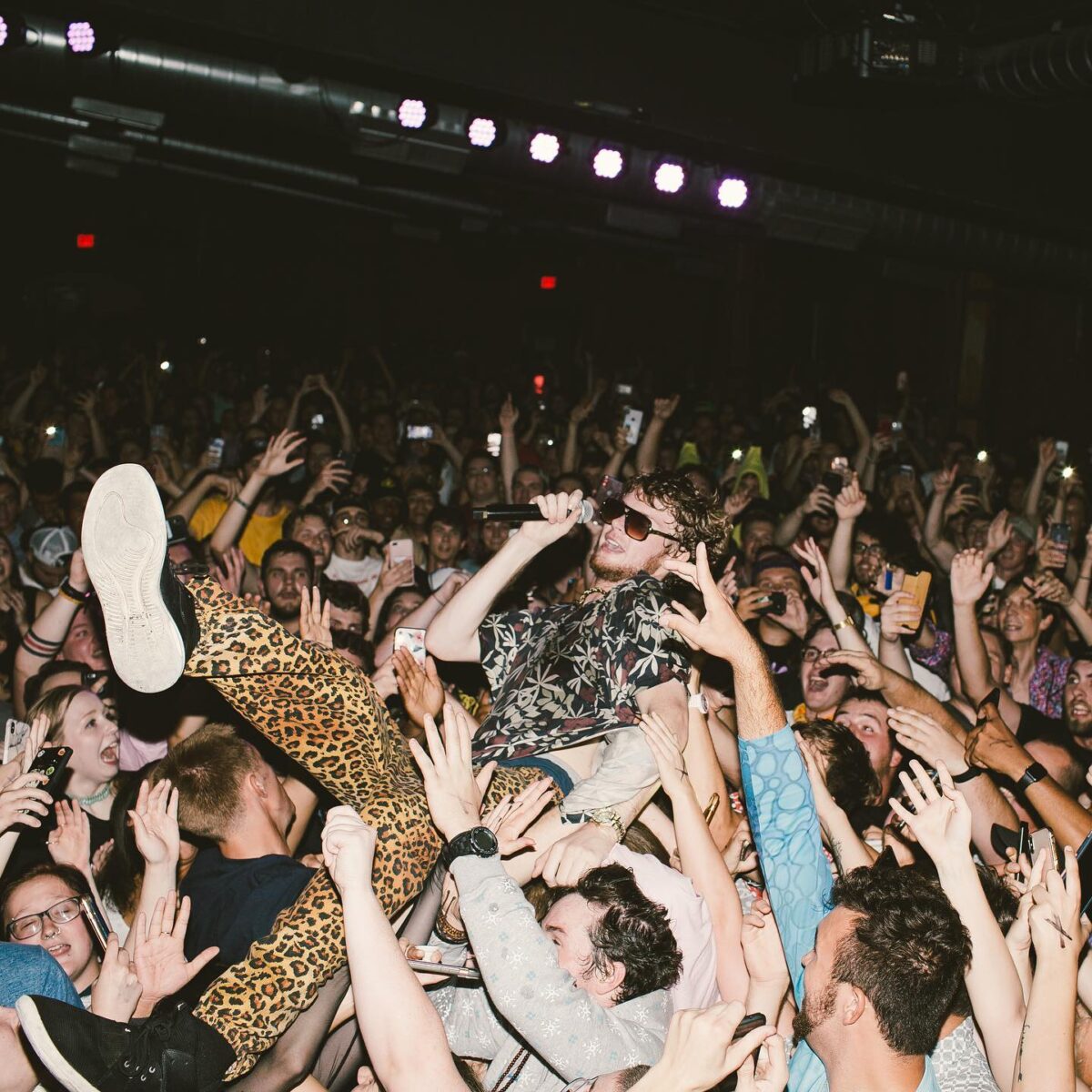
“Did you expect your rap career to blow up?”
“Not really. Once I really started getting into it, I was like, ‘Oh, this is going somewhere’. At first when I decided to make music, I was like, this will just be fun, and if I can like somehow get to the point where I can talk to– I remember one of the things I thought to myself was like, if I could ever talk to Curren$y, then I’ll be happy. Like, that’d be insane. That was my favorite rapper. That was the goal. And I mean, I’ve DM’ed him a shitload now, and probably talked to him for the first time like two years ago. So like, it’s blew way past what I expected. Once I had been making music for six months and seeing how my shit was growing on SoundCloud versus like the average artist and just kind of how I was seeing things maneuvering, I was like, okay, this is going somewhere. But still I didn’t ever expect it to be as big as it is.”

And now he’s in the studio, brushing shoulders with some of the biggest names. This album in particular sees two Chief Keef features, as well as Young Dolph and Ski Mask the Slump Gud, who once wouldve been on his shortlist for dream collab. Now, he hopes to work with Tyler, the Creator. “I think we could vibe and really make something dope.”
This is an interesting choice, I later realize. Tyler’s early fans, no stranger to vulgar, outlandish, or otherwise crass lyrics, had been exposed to just enough craziness that they might jump ship onto the Gravy train, allowing Hauri to find a new fanbase in listeners he otherwise might not have reached. Maybe they might just find something refreshing in Hauri’s fearless lines.
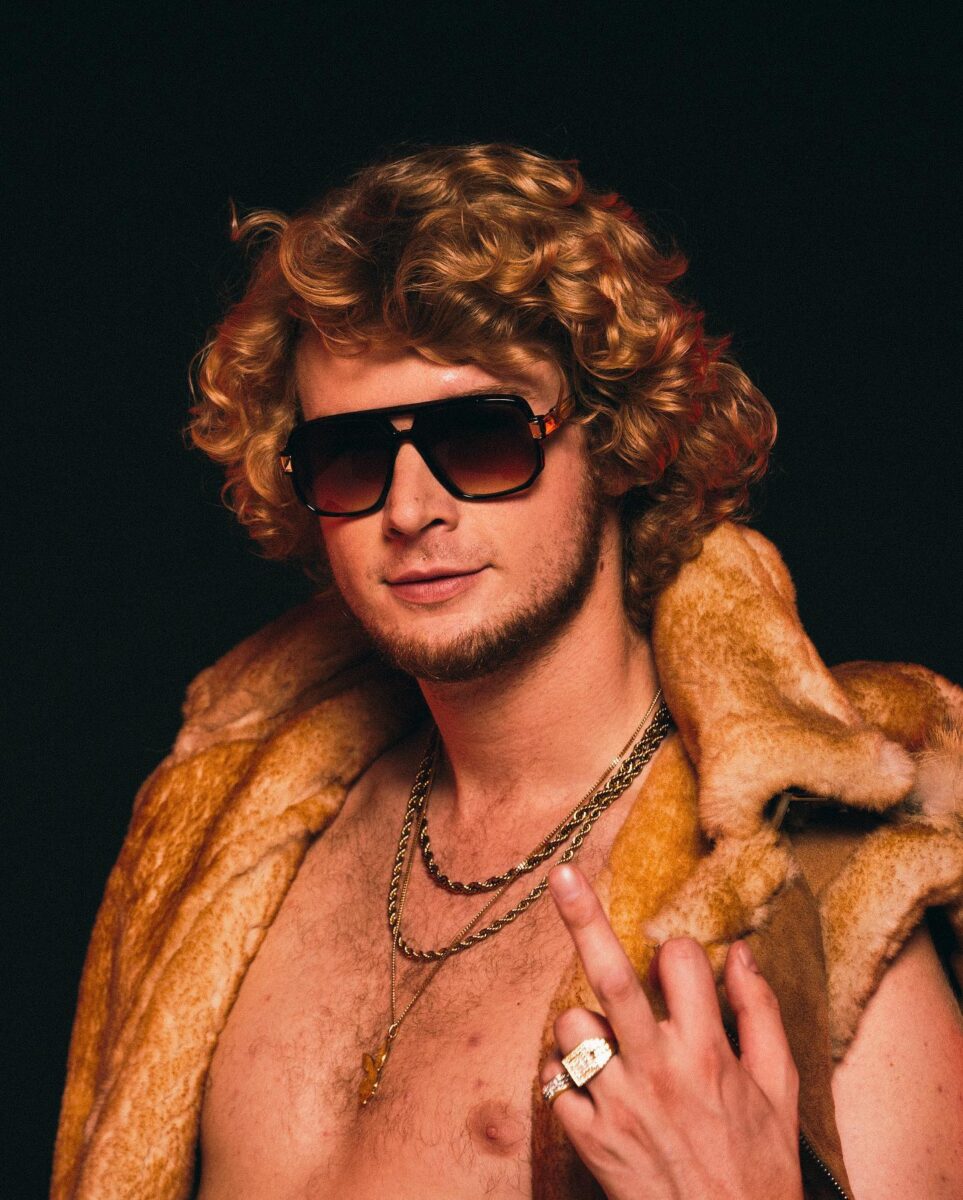
“Do you find it’s harder to be a white rapper in this political climate?” Looking back, I regret the wording I used. I meant to ask if he felt uncomfortable being in a genre that is so profoundly black, especially in a time where black people are now, more than ever, at the forefront of the nation. And I’m in this particular mindset after having unpacked the events surrounding George Floyd, curious to see if his outlook had changed with him having been in the thick of it.
“Yeah, I wouldn’t say it is. There’s so many different nuances to anybody’s success, but no. I think people can appreciate anything. There’s obviously people won’t, just in their mindset, but nowadays, compared to like what you could see like back in the day with like– I mean I guess Eminem is kind of a really obvious example– but I think that there’s a lot more just general acceptance of white rappers, and not really looking down on them. And if there is, I’ve noticed that once I show somebody who I am and what my music sounds like, that people can learn to respect whoever. Usually if I go into a studio or something and I get some sort of weird reaction, it just takes like 10 minutes of talking and maybe playing one of my songs for someone to warm up and fuck with me in most cases.”
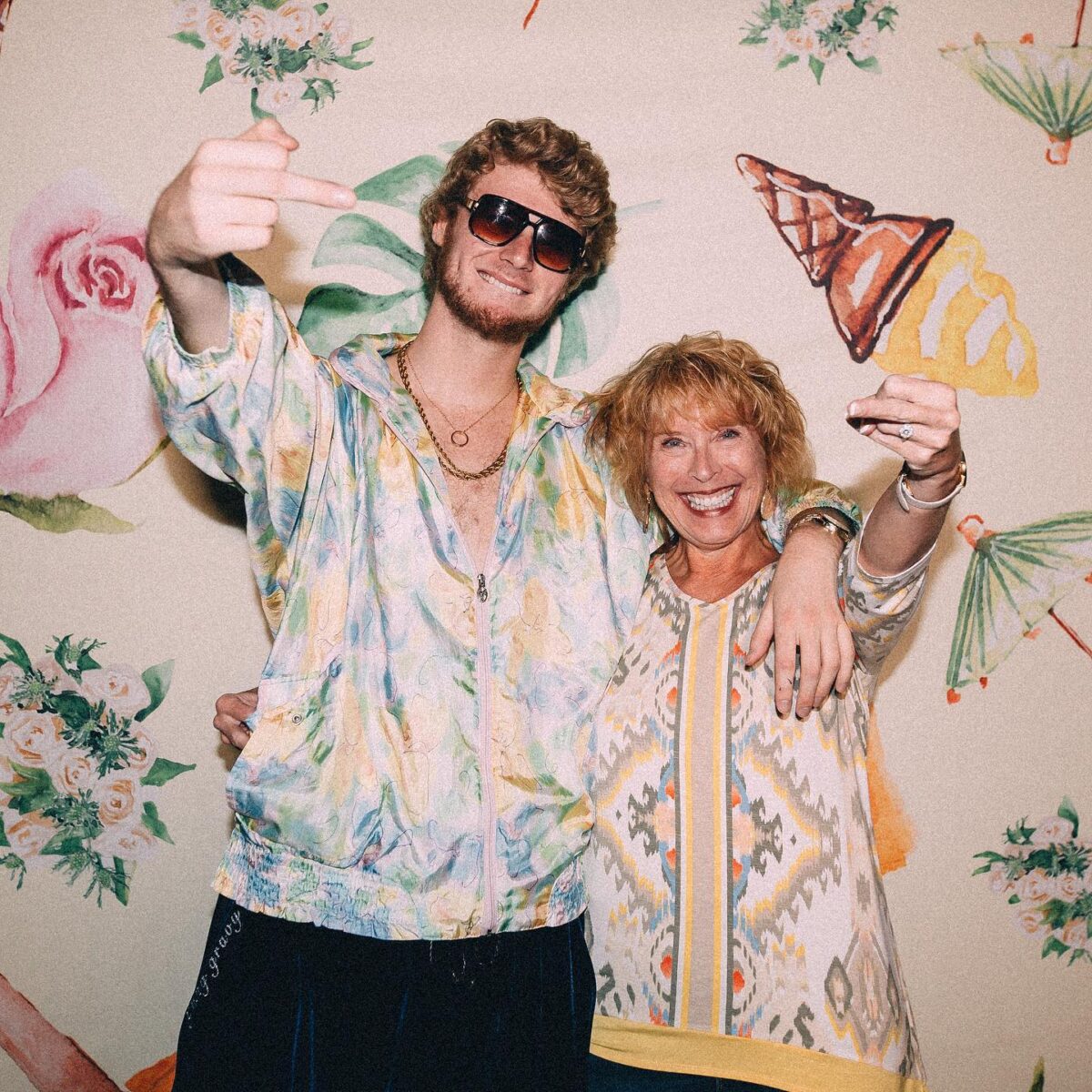
When we get to talking about his lyrics, I notice that there isn’t much really to say. With daunting lyrics that pretty much speak for themselves, there isn’t very much to sit down and unpack as I normally do when I talk to an artist. But still yet, I pick two of the most nuanced tracks on the album to ask about, “Whole Foods”, and “Martha Stewart”.
“Whole Foods. That song is about Whole Foods. That’s another one where it’s a very bold, as you said, bold song where it’s talking about freaky, freaky, hoes, shopping at Whole Foods.” I realize quickly that this one isn’t going to yield much. “I guess I kind of doubted the health community and didn’t realize that there were freaks in the health community. I realized that when I was in LA, and that’s the truth. Gotta show some love to the overly healthy granolas. Underrepresented community in hip-hop. So I had to show ’em some love.”
That song, the record’s discordant midpoint, contains some of Gravy’s strangest, unexpected lyrics, while somehow capturing Los Angeles culture to a T. The obsession with health by day, the tendency to party all night and succumb to vices altogether contradictory to the health bender that had been carefully crafted just that morning while shopping at Erewhon. I lose myself to laughter a little bit.
“That was another one where I was like, ‘Should I put this out? Like, are people gonna be confused or should I just…? And we just rolled with it.’
I ask if there were any others.
“Bag of chips. ‘Got your bitch sucking dick for a bag of chips.’ My friend kind of wrote that bar initially, but that’s was one where we were playing on a zoom call with a lot of older people at VEVO for a meeting. And I was just like looking at all these people, at these people’s screens, and I heard that and I was like, Oh, that is kind of a raunchy line right there. That was the one song I was like, Would someone take offense to this? And I asked around and people didn’t think so, but that’s the one where I was just like, Okay, hmm. Both of those are a little out there, but I’ve probably done worse. Like I said, I’ve already reached the point where there’s no return.”
“And ‘Martha Stewart’?”
“Martha Stewart is just the embodiment of everything Gravy, like everything that I rap about. Like she hangs out with cougars– well you hear it in the lyrics but– hangs out with cougars in the kitchen, self-made, I’d set all my songs self-made, went to jail briefly. Martha Stewart’s a hustler! It’s just very fitting.”
This is usually the part where I ask what is the song fans would be most confused or shocked by, for any reason. But with his bold lines and overall unpredictability, Gravy fans have come to expect almost anything, from lyrics that about Whole Foods to ones that make fun of a girl for performing sexual acts for a bag of chips. “In like my first song that really blew up, I was talking about eating ass. And after a certain point, you’ve already crossed the threshold and it’s like, you can’t go back.”
And this is true. The first song he ever put out was entitled Karen, which contained vivid imagery of Gravy nude in the backyard after having engaged in sexual activities with all the women of the family. Since then, Gravy has rapped about a myriad of taboo things, even, as we know, likening himself to Martha Stewart. It’s all fair game for Yung Gravy— sex, cheating, escapades– which is what makes him more memorable that I’d like to admit.
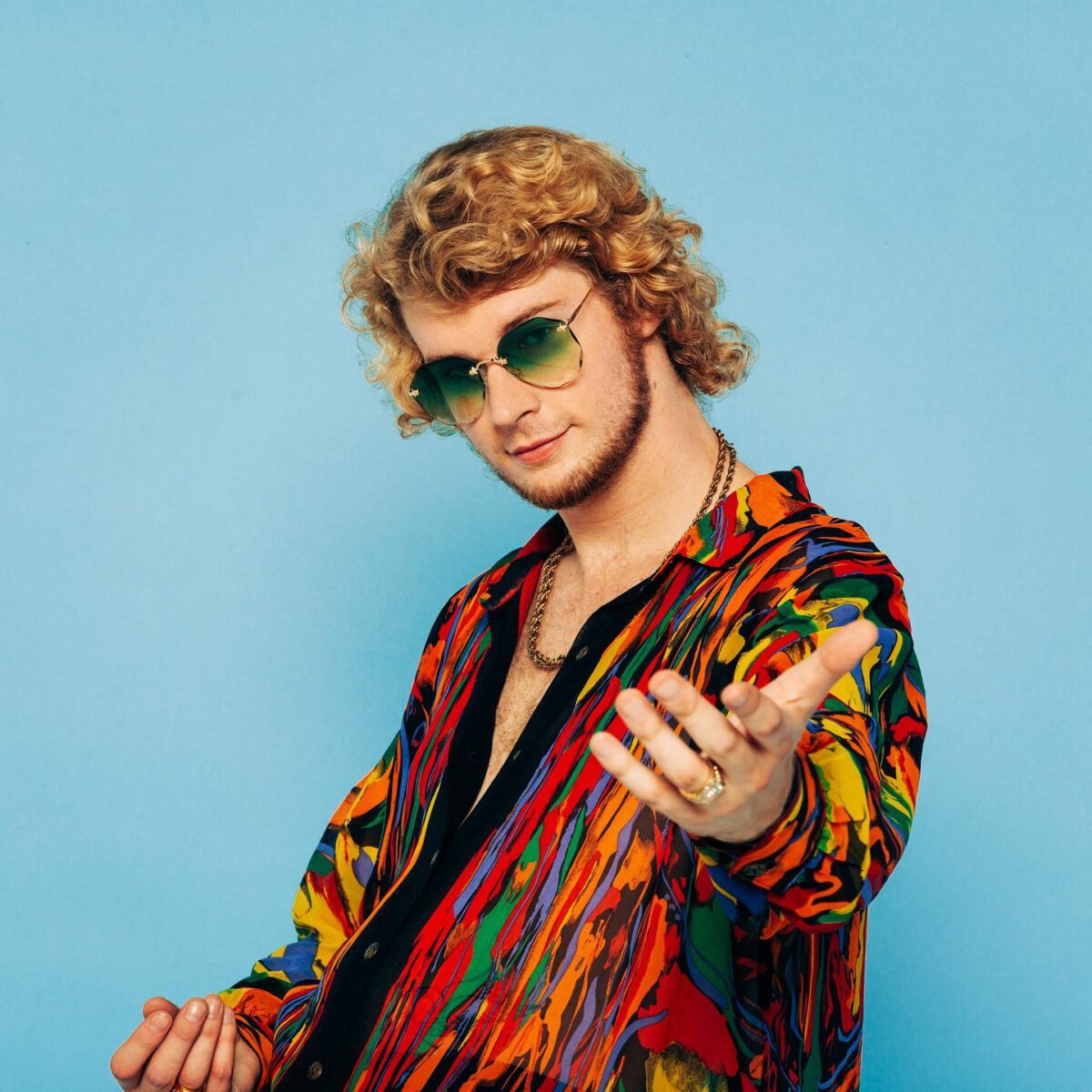
“When I first ever rapped, I would freestyle with friends and stuff and just fuck around. That was kind of always the type of lyrics that I would spit when we were just kind of in that private setting. There was no filter really, ’cause it was just the homies. I would just say whatever. And I feel like that carried over into when I actually started writing music. Obviously there’s been a lot of times where people have been like, ‘Whoa, dude, like, are you really gonna say that?’ But after a certain point, you can’t go back.”
I’m curious to see if he would ever find himself writing emotional lyrics.
“I feel like I’ve added lyrics in places that are more serious. A recurring theme is anti-racism. Not fucking with the general skinhead population has been a popular topic. But I like the feeling of just making people happy. I could see me writing more serious stuff [to bring awareness], but I don’t think I’d really go down the emotional road.”
This makes sense. At the core of his rap persona is fun. Personal freedoms. That’s the first thing he says comes to mind. “Free. Freedom. I feel like it kind of gives people a feeling of like, not caring as much. Like, careless…” He backtracks. “Carefree! That’s a better way to put it. ‘Careless’ has a negative connotation. Fun, giving people like a way to feel carefree and looking for one word, I’d say something like that, like carefree or, or fun. I like to give people kind of a feeling of not caring about shit.”
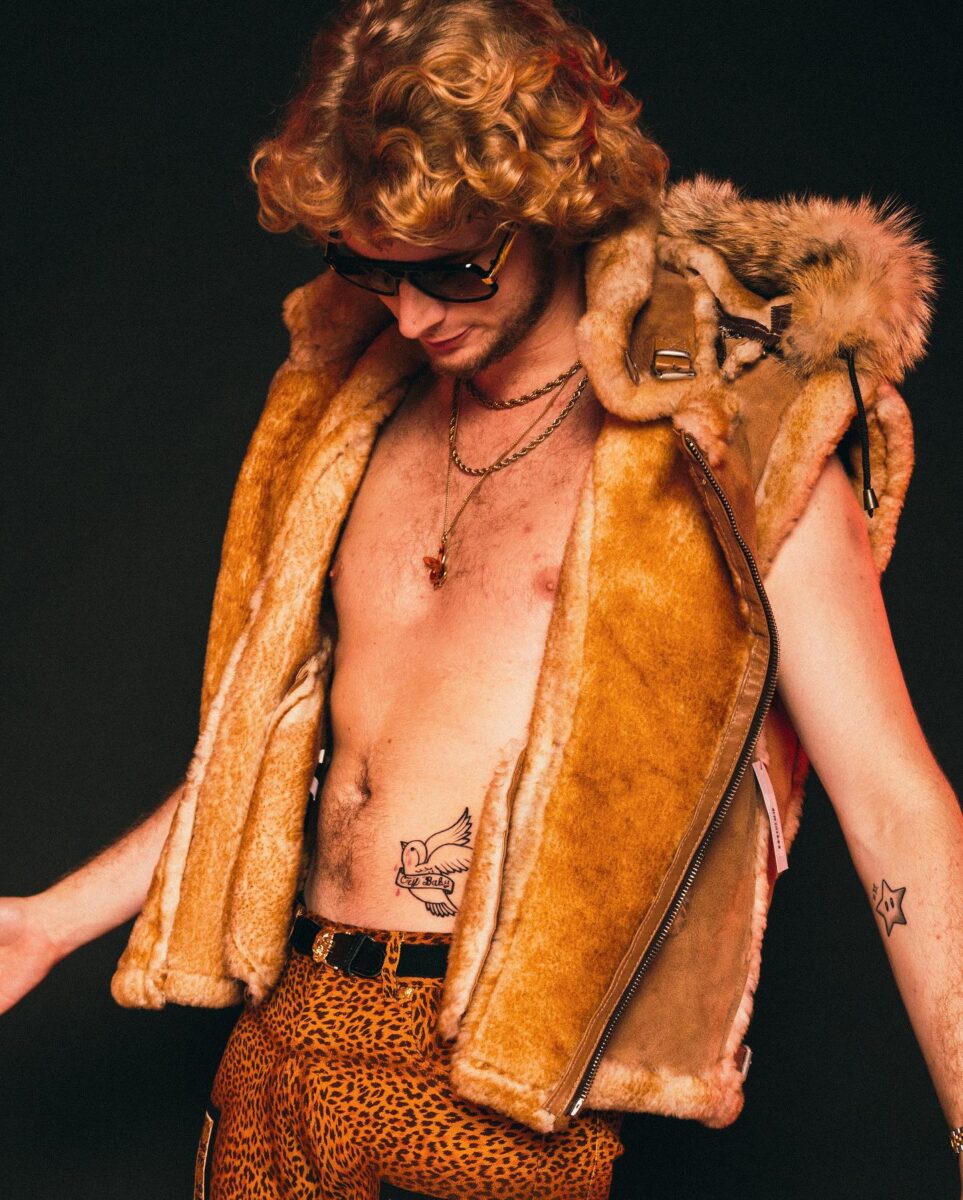
And that’s certainly what we need, especially now where just we can’t seem to catch a break.

